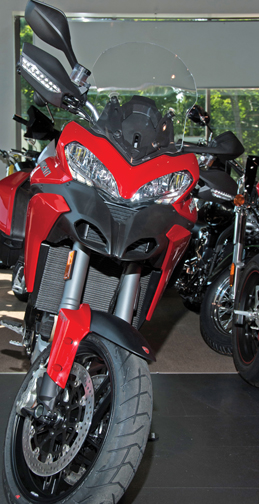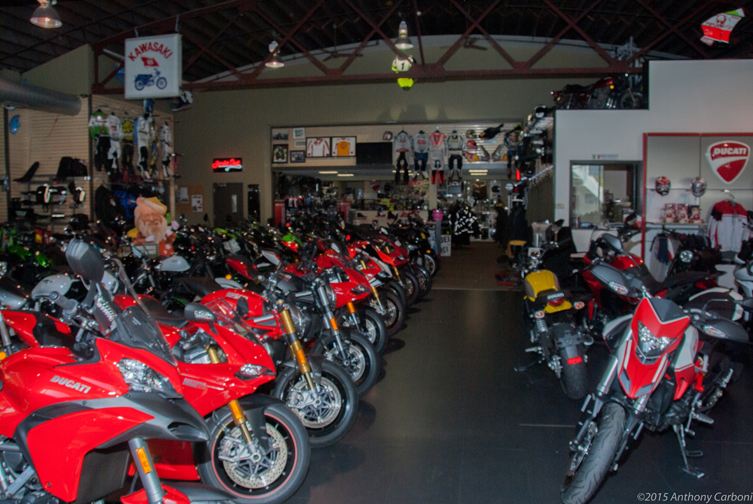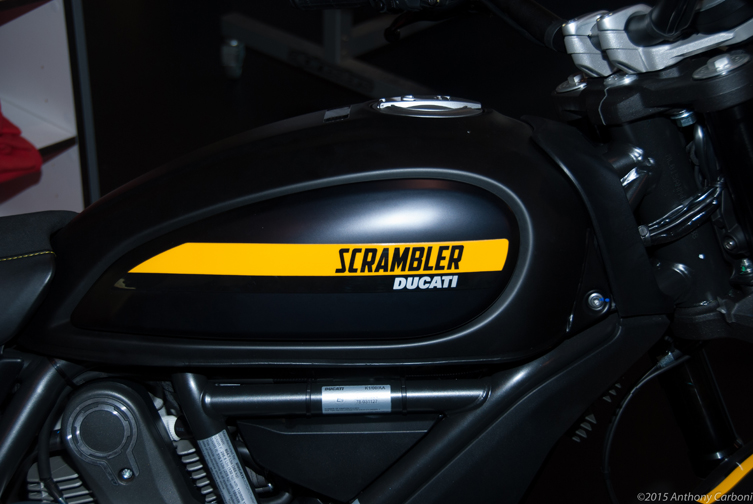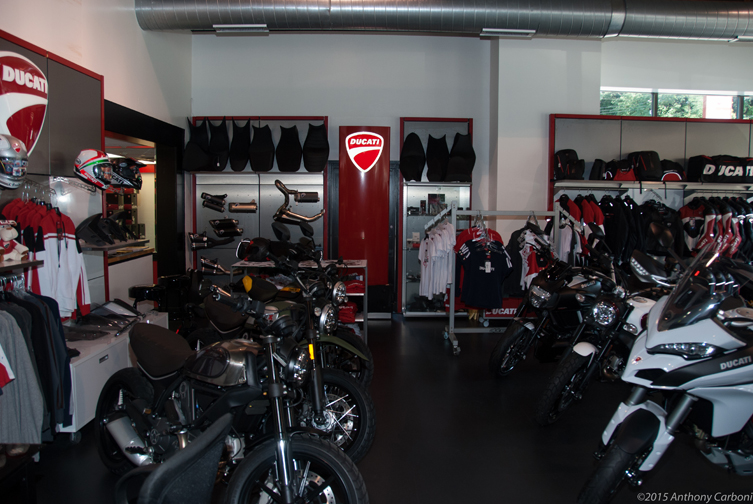Photographs by Anthony Carboni.
Marlon Brando as “The Wild One.” Steve McQueen’s “The Great Escape.” Lawrence crashing after Arabia.
Few vehicles command the sleek danger and power, the romantic rebellion and freedom of the motorcycle. A status symbol in WAG country — where a bike from Hudson Valley Motorcycles in Ossining, the only Ducati retailer in Westchester County, was recently displayed at The Westchester in White Plains — the motorcycle has a more functional purpose in Asia, where cars and gas are more expensive. (More than half of bikes can be found in Asian locales like Jakarta, where girls in too-short skirts cling to the waists of their guys as they careen around traffic circles on motorcycles and mopeds.)
The motorbike — which had its birth in the second half of the 19th century — quickly found a utilitarian calling, carrying messengers to and from the front, along with military police, during World War I. Film buffs will remember the moment at the end of “Lawrence of Arabia” (1962) when one such motorcyclist whizzes by the British leader of the Arab revolt against the Turks as he heads back to England, foreshadowing his death there in 1935 after he swerved his Brough Superior SS100 to avoid two boys on bicycles near his cottage in Dorset and was thrown over the handlebars. Eighty years later, motorcycles remain dangerous, accounting for 37 times more fatalities than cars in the U.S. alone.
But danger is part of the lure. Think of Brando and his gang blowing into town in the 1953 film “The Wild One” — his rolled-up jeans and motorcycle jacket (still the uniform of the cool iconoclast) fitting like a second skin, his cap cocked just so.
“What are you rebelling against, Johnny?” a girl asks.
“Whaddaya got?’ he snarls. Swoon.
We, too, are seduced, because we, like she, intuit that Brando’s Johnny isn’t a bad boy. He’s just misunderstood, like the doomed title character in the hit 1964 song “The Leader of the Pack.”
Despite violent incidents like the biker beating of Alexian Lien after a 2013 altercation on the Henry Hudson Parkway in Manhattan, bikers have been romanticized as a vanishing breed of American originals. They’re Steve McQueen defiant and enduring as he endlessly struggles to flee a German POW camp in “The Great Escape” (1963), which contains an iconic scene of the actor vrooming around the undulating countryside. Bikers are Peter Fonda — who played a Hells Angel in the 1966 movie “The Wild Angels” — discarding his watch, symbol of Father Time and The Man, and lighting out with Dennis Hopper in “Easy Rider” (1969), only to find tragedy waiting.
Still, we’ll never forget them, the leaders of the pack.





